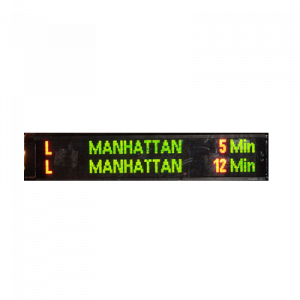It’s a “buyer’s market” for MBA degrees as rocketing acceptance rates, scholarship money and starting salaries for graduates make today among the best times in recent history to enroll at business school, according to admissions consultants.
“It’s a buyer’s market for MBA applicants right now,” says Chioma Isiadinso, founder and chief executive of admissions agency Expartus. “Strong candidates have more options given the decreased application volume and rising admission rates at the majority of top schools.”
Last year business schools faced a fifth consecutive year of application declines in the US, according to entrance test body GMAC, but the outlook for prospective students looks much brighter: lower application volume increases the odds of admission.
At Yale School of Management, one-quarter of MBA applicants were admitted in 2019 after the Ivy League school’s acceptance rate jumped by nearly 44 percent in the past two years. At Indiana University’s Kelley School of Business half of candidates were accepted, as the acceptance rate rocketed twelve percentage points and applications plunged by 40.6 percent.
“What we would say to those who are on the fence about going to business school is that as far as admissions odds and earning potential go, this is one of the best times in recent memory to enroll,” says Jeff Thomas, executive director of graduate programs for Kaplan Test Prep. But he adds “top-ranked programs are never hurting for top talent”.
Rolling out the red carpet
Business schools are also rolling out the red carpet for applicants: ramping up their recruitment efforts and awarding more scholarship dollars to entice candidates out of one of the hottest labor markets in decades, with competition for talent driving up the salaries of fresh MBA graduates.
“We have increased our events both domestically, internationally and virtually, in order to ensure that candidates know we are an open and welcoming community,” says Shari Hubert, associate dean for admissions at Duke University’s Fuqua School of Business. “We have also invested in providing more merit-based scholarships.”
After several years of inflation busting tuition fee increases that have put some students off pricey MBA programs, especially in the US, some schools are freezing fees. Harvard Business School and University of Chicago Booth School of Business held MBA fees steady for the 2019-20 academic year.
Record-setting year for MBA career outcomes
It has also been a record-setting year for several top business schools in terms of career outcomes. In 2019, for the fifth straight year, Stanford Graduate School of Business reported record-breaking average starting salaries for recent MBA graduates: $152,503. Including “golden hello” signing bonuses, total average pay for fresh graduates at Dartmouth College’s Tuck School of Business increased 10 percent on 2018 to a record $170,000. At NYU Stern School of Business in New York the employment rate, at 94 percent, was the highest in over a decade.
“The fact that MBA graduates are continuing to earn record high salaries affirms the value the market places on MBAs,” says Isiadinso. “As long as the salary data continues to be strong, the MBA will continue to be viewed as a great investment.”
Meanwhile, MBA programs overseas are becoming more popular, especially in Europe, Canada, China, other parts of Asia as well. This reflects their increasing teaching quality, reputation and the relative decline in attractiveness of US schools.
“Our clients are hedging their bets to avoid getting caught in the recent restrictive US visa and work permit policies,” by applying to schools around the world, says Isiadinso. “The international MBA programs are experiencing a bit of a golden age phenomenon at the moment.”
Rodrigo Oliveira, who came from Brazil to America for his MBA, was concerned that he would not secure work authorization in the US: the government tightened the application process for some visas.
“I had a goal of working for a big tech firm, and I realized that the US was the place with the best opportunities,” says Oliveira.
He enrolled at Duke Fuqua in 2018, enticed in part by a $30,000 scholarship, and took a technology-focused course that qualified him for an additional 24 month stay in the US on graduation, in 2020. The optional practical training (OPT) government scheme that plug skills gaps, usually grants a 12 month stay.
It helped Oliveira to land a job at Apple, in the iPhone maker’s US operations team.
Admissions consultant Stacy Blackman warns that an applicant’s chances of admission depend on whether their background and career aspirations fit with the program. “MBA programs value a much broader range of MBA applicants, to allow for rich diversity of all types within the classroom,” she says. “Application quality is important, as there’s an increasing priority to get to know the individual applicant’s authentic life story and character.”
The risk is that schools may lower entrance standards to fill seats, potentially compromising the quality of peer discussion and failing to impress corporate recruiters. However, this scenario does not tally with Oliveira’s experience: he had to delay applying to Fuqua while he improved a prohibitively low GMAT admissions exam score.
“I waited and applied with the best application,” he says.










